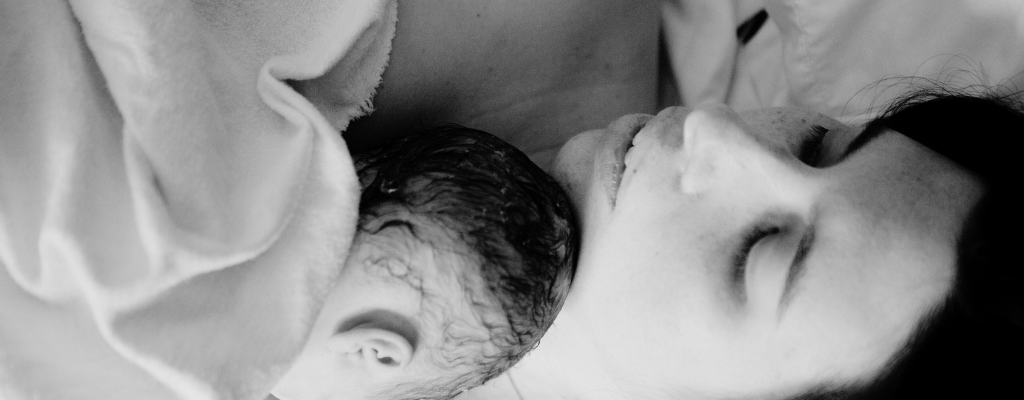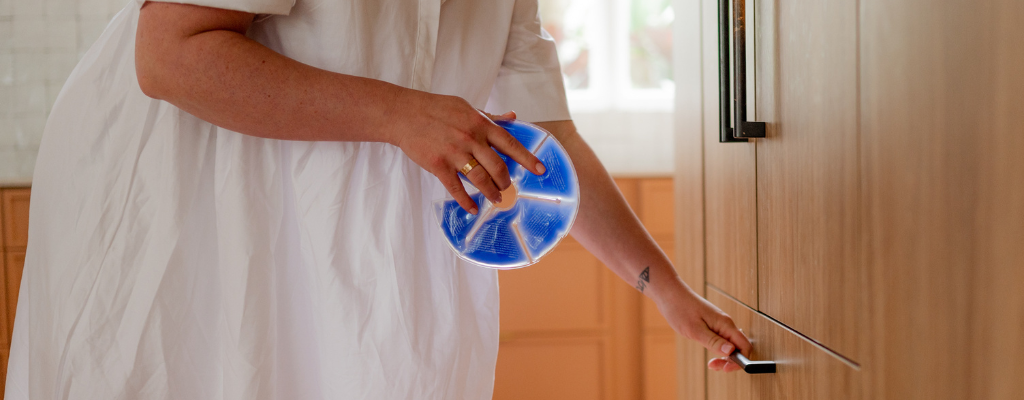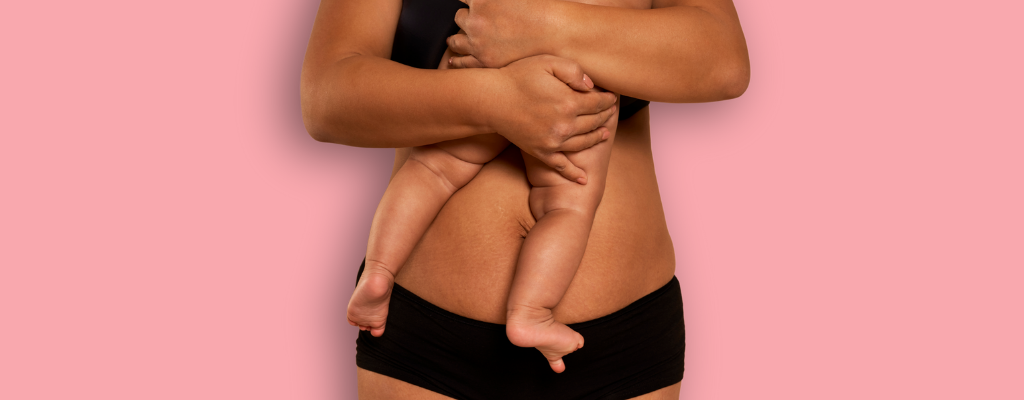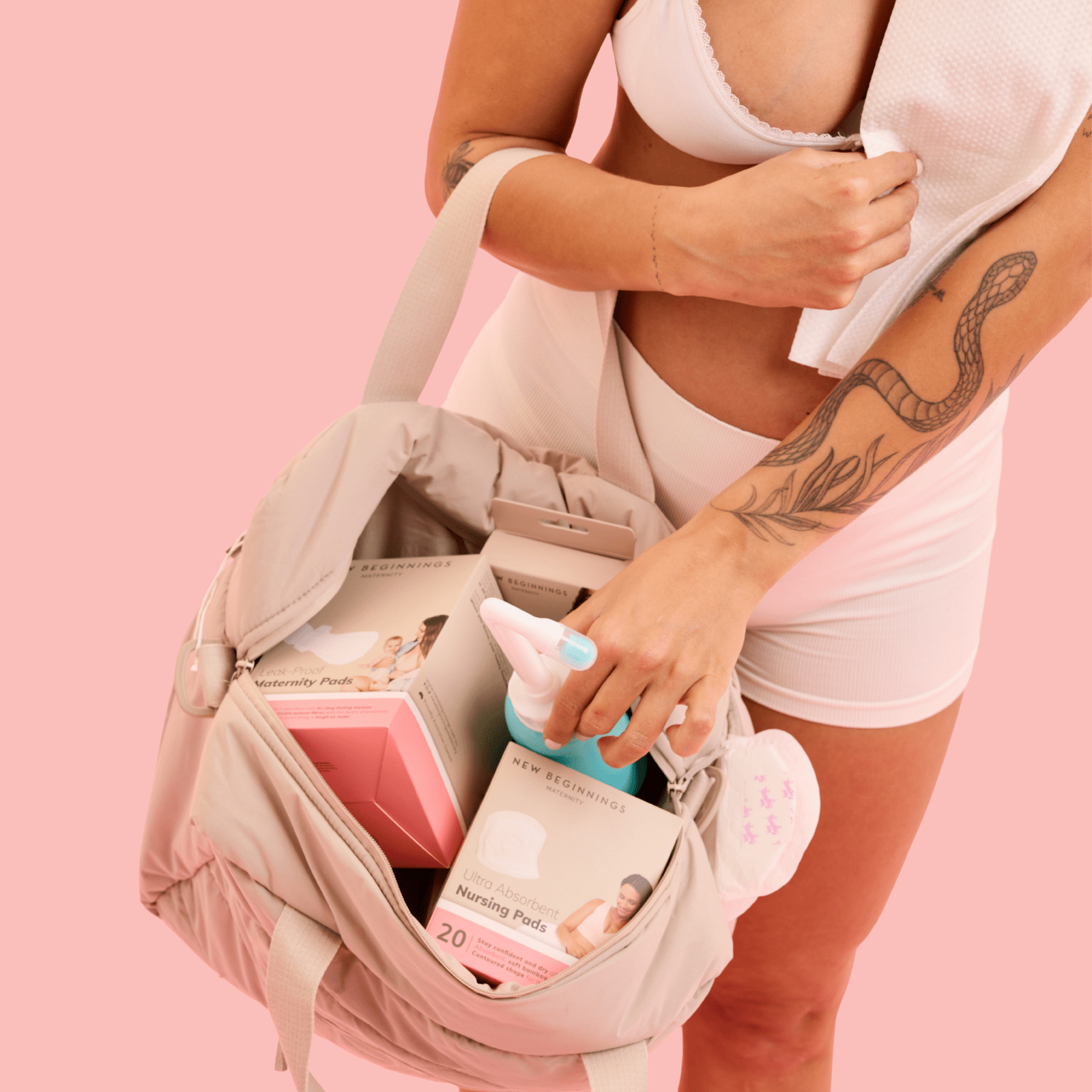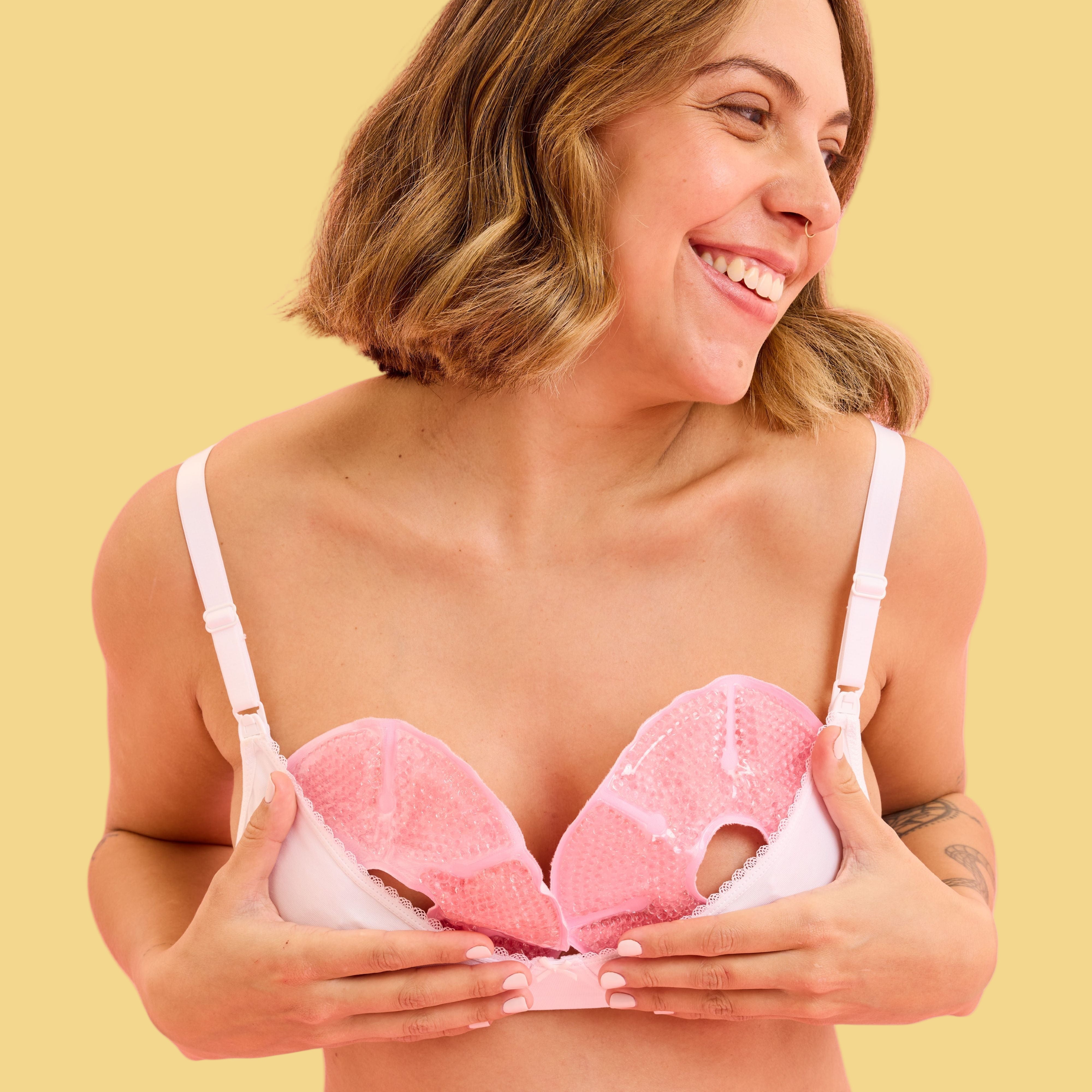Maternity Blog & News | New Beginnings
Unexpected Facts About Labour No One Tells You
Discover the surprising truths about labour no one tells you - shakes, emotions, placenta, and more. Real stories, raw honesty, and expert-backed facts.
Learn moreThe First Week of Breastfeeding: What to Expect
Your first week of breastfeeding: What to expect, how to manage engorgement, ensure a good latch, and soothe sore nipples. Expert tips to help you and your baby thrive!
Learn moreSaving My Sore Bits: Our Top Recommended Postpartum Essentials
Postpartum recovery is no joke—swelling, tearing, and discomfort are all part of the journey. Discover the must-have postpartum products that provide real relief, from perineal wash bottles to cooling pads. Get expert-backed tips to heal faster and feel more comfortable after childbirth. Because, mama, you deserve it!
Learn moreBaby Fruit Size By Week: How big is my baby?
Curious about your baby’s size week by week? Explore our fun and informative guide comparing your baby’s growth to fruits and veggies from 1 to 40 weeks. Download your own baby size chart today!
Learn moreLabour & Pregnancy: Best Laid Labour Plans | New Beginnings
As the final stages of pregnancy creep up on you, much like those swollen ankles, you know it’s time to start thinking about the arrival of this baby. I’ll never forget sitting in my antenatal class and having our teacher passionately describe how women have been birthing babies for thousands of years. How it’s such a natural process for the female body to contort and stretch for this very purpose. When I look back at my labour I would agree that it is a miraculous event and my body adapted very well but it didn’t go exactly to plan and holy moly was it painful! It’s all written in the word isn’t it? Labour.....meaning exertion, struggle, hard work and it is! Have a chat with your partner, OB or midwife about what is really involved during birth and have a loose birth plan – think about; - What type of birth do you want- water birth, natural, laying down, or resting on a fit ball? -What tools will aid you ie music, oils, breathing techniques, tens machine? - What type of support will you require from your partner ie pep talks, holding your hand, strong & silent, giving you a blow by blow as it happens, no touching at all? -What pain relief is available and are there any side effects for the baby? -What will happen if I need a cesarean and what does that recovery post baby look like? Here’s hoping everything runs smoothly but in the case your baby needs some extra support post birth, it’s important to know what you and your partner want to do. We decided should bub need to leave my side for any reason, my partner would follow at all times, I felt more comfortable knowing this. This will be an experience where you won’t know what to expect but you can be informed and have asked questions beforehand to help feel comfortable. Your midwife or OB will generally ask what your birth plan looks like so they can cater to you but please remember to be flexible. I had every intention of having a natural water birth and in the end I found the bath offered no relief and that gas was not sufficient enough to relieve the pain. I found the tens machine worked really well in redirecting my brains pain receptors but I did end up having an epidural that did not relieve me completely of pain (no one had told me that epidurals don’t always work) but definitely took the edge off. I knew myself enough to know when I needed extra assistance in the form of pain relief and I was able to continue with my intended plan and give birth to a beautiful baby. Let’s face it, giving birth is a heroic feat and it will test you and your partner’s determination and strength but what an amazing sight it is to see this beautiful baby at the end of all your hard work. Remember to be informed and aware and follow your plan but be flexible about adjusting it to suit the needs of you and your bub. Enjoy it, as much as it is the hard part, be in the moment and communicate with your partner and support team. You are not in this alone, there is a tiny being ready to be glued to your side for the rest of your life. Good Luck x Author: Elise Bradfield @elise_bradfield Image: @leahandeva!
Learn moreTop 5 Hospital Must Haves
Packing your hospital bag feels like such a milestone, doesn’t it? For me, it didn’t truly hit that I was about to become a mum until I started tossing things into a bag. My partner was not impressed by my last-minute packing (oops). Antenatal classes helped with the basics—like button-up pyjamas for feeding and socks because birthing suites are cold—but what I really wish someone had told me were the actual essentials that made those first few days easier. Here are my top 5 hospital bag must-haves for first-time or returning mummas. 1. Maternity Pads I’ll be honest: I thought big supermarket pads would do the trick after birth. Nope. Postpartum bleeding (lochia) is heavy and lasts weeks, not days, so you’ll want proper maternity pads. They’re more absorbent, longer, and softer—exactly what your recovering body needs. The New Beginnings Maternity Pads were a lifesaver for me: comfortable, the right length, and no stressing about leaks every time I stood up. Stock up—running out in hospital is not fun[1]. 2. Maternity Bra’s One thing I wish I had known earlier: bring at least two maternity bras to the hospital. You’ll need them from the moment your baby arrives, and trust me—they’ll quickly become your new best friend. A good maternity bra offers more than just support; it gives you comfort when your body is changing daily, easy access for breastfeeding, and a little modesty when you’re juggling visitors and nurses in and out of your hospital room. Having more than one also means you’re covered when one gets messy (and it will!). If you’re unsure what to buy, check out our guide on Maternity vs Nursing Bras. It breaks down the difference and helps you choose the right bra for both your hospital stay and the weeks of recovery and feeding that follow. 3. Toiletries/Makeup One thing I wish I had known earlier: bring at least two maternity bras to the hospital. You’ll need them from the moment your baby arrives, and trust me—they’ll quickly become your new best friend. A good maternity bra offers more than just support; it gives you comfort when your body is changing daily, easy access for breastfeeding, and a little modesty when you’re juggling visitors and nurses in and out of your hospital room. Having more than one also means you’re covered when one gets messy (and it will!). If you’re unsure what to buy, check out our guide on Maternity vs Nursing Bras. It breaks down the difference and helps you choose the right bra for both your hospital stay and the weeks of recovery and feeding that follow. 4. Personal Items A few extras made my stay smoother: Thongs for the hospital shower A few outfit changes Muslin wraps for bub Nappies (my hospital didn’t provide them!) A water bottle I could refill easily Dummies (if you choose to use them) It’s not about overpacking—it’s about having the things that help you feel prepared and calm. 5. Snacks Breastfeeding takes a lot out of you, and your body needs fuel. Hospital food can be hit or miss, so I packed muesli bars, crackers, nuts, and fruit. My partner also did the traditional “first meal run”—mine was sushi, and I savoured every bite! Hydration is just as important. Keeping a big water bottle by my bed reminded me to sip constantly (your body will thank you, and so will your milk supply). Hospital bag lists often cover the basics, but these little extras—maternity pads, comfy bras, your own toiletries, a few personal must-haves, and snacks—make a huge difference in how supported and comfortable you feel. If you’re starting to pack, check out our Postpartum Products Collection for recovery essentials that make those first few weeks easier. You’ve got this, mumma.
Learn more
